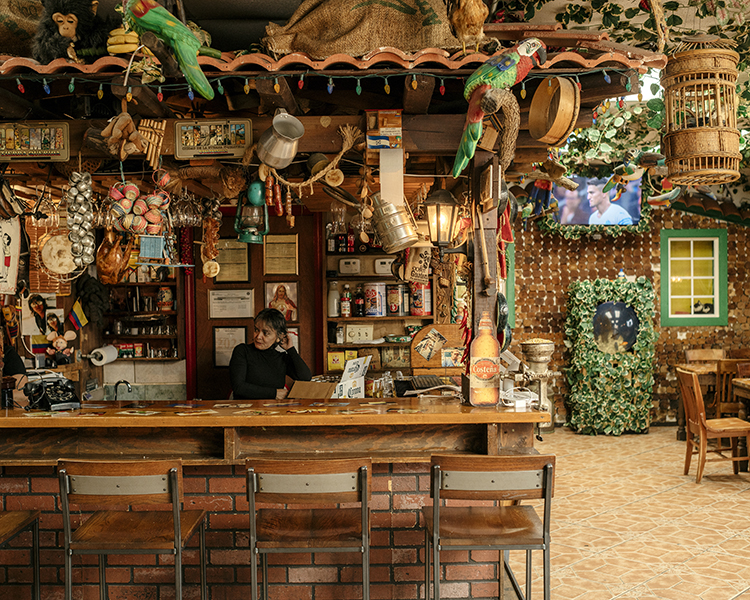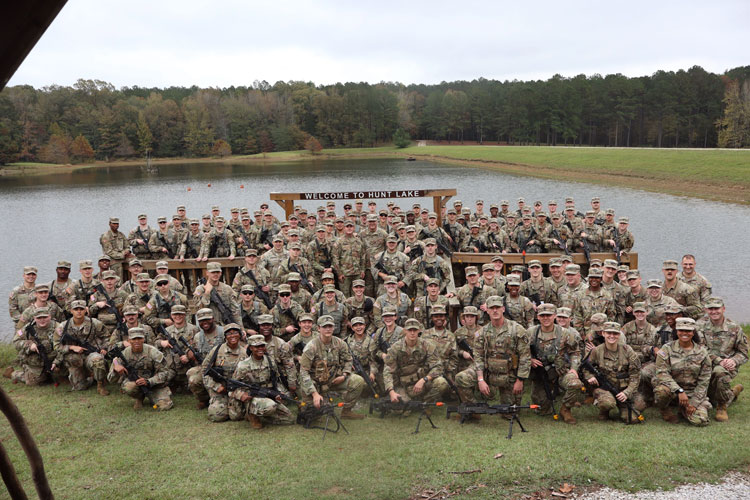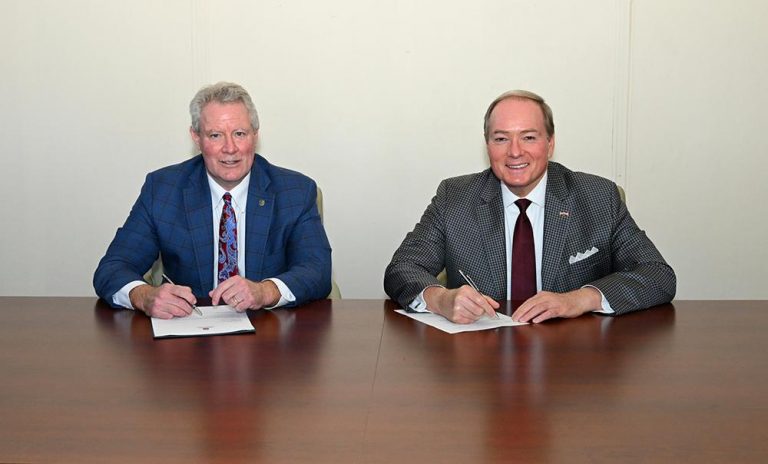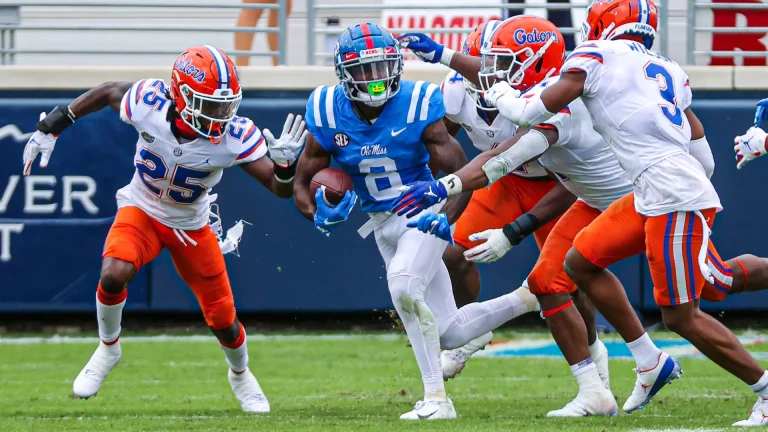
An employee stocks the bar at Mi Tierra on Summer Avenue in Memphis in this image supporting the Summer Avenue Oral History Project. The project, which features restaurateurs, market owners and retailers from along Summer Avenue, is the subject of a discussion set for March 24 as part of the SouthTalks Series sponsored by the Center for the Study of Southern Culture at the University of Mississippi. Submitted photo
First lecture set for January 26; schedule includes both virtual and in-person events
The spring SouthTalks Series, sponsored by the Center for the Study of Southern Culture at the University of Mississippi, continues the focus on “Mississippi Voices.” This theme finds connections to other places, problems and people that solidify the global interconnectedness made undeniable by the pandemic.
SouthTalks explore the interdisciplinary nature of Southern studies and includes lectures, performances, film screenings and panel discussions. Although events usually take place in the Tupelo Room of Barnard Observatory, many have shifted online because of the ongoing COVID-19 pandemic, and others that are set for in-person may shift to virtual formats.
All events are free and open to the public, but registration is required to receive the link. All SouthTalks will be made accessible on the center’s YouTube channel after each event.
“Although we are entering our fifth semester of programming during a global pandemic, I am excited about our lineup that continues to explore ‘Mississippi Voices,’ past and present, with an eye toward the future,” said Afton Thomas, the center’s associate director for programs. “I hope you will join us online initially and, hopefully, in-person later this semester.”
Alicia Jackson kicks off the schedule with the first virtual SouthTalk, “Shall We Stay in Hell on Earth?” at noon Wednesday (Jan. 26). During this presentation, Jackson will explore how formerly enslaved people found refuge from racial injustice during the waning years of Reconstruction and beyond by escaping to Black communities in places such as Panola, Tate, and Marshall counties in north Mississippi.
Jackson’s talk springs from her new book, “The Recovered Life of Isaac Anderson.” A minister and politician, Anderson was forced to flee Georgia despite being elected to the state senate in 1870. Like hundreds of other formerly enslaved people, he found short-lived refuge in northern Mississippi.
Jackson is an associate professor of history at Covenant College in Lookout Mountain, Georgia, who also leads a student-based research project known as the District Hill Cemetery Project. Register for her SouthTalk at https://bit.ly/3I8LTlj.
At 5:30 p.m. Feb. 10 in Barnard Observatory’s Gammill Gallery, Nadia Alexis presents “What Endures.” The artwork of Alexis, a photographer, poet and creative-writing-concentration doctoral student at UM, are being shown in the Gammill Gallery through Feb. 18. The photographs in her series “What Endures” focus on the enduring spirit of Black women and contribute to the conversation on how Black women exist in photography.
The photographs in this series began as an independent study course that Alexis took in the Department of Art and Art History, where she was inspired to make photographs informed by her personal experiences and those of other Black women survivors of trauma. The images in her exhibition are of Alexis and her mother, all of which were taken outdoors in Oxford and explore themes of survival, freedom and transcendence.
“What Endures” is a body of work that tells the story of returning to self and explores what it means to be a Black woman in the world, Alexis said.
“As a poet and photographer of Haitian heritage navigating the American landscape, I am a descendant of women survivors whose traumas I grapple with as I make photographs,” she said. “Using my body and my mother’s body as the ‘Woman in White,’ I perform a relationship between the Black female subject and the natural landscape, asserting that the natural world is a place of freedom and communion, as well as a place of haunting and alienation.”
Journalist Berkley Hudson presents “Listening to the Mississippi Pictures of O.N. Pruitt” at noon Feb. 16. Originating in the Jim Crow era from Columbus, the photographs of Pruitt (1891–1967) offer a vehicle to consider the vexing interrelations of photography, community, culture, race, and historical memory.
Hudson, a Columbus native and author of O.N. Pruitt’s Possum Town: Photographing Trouble and Resilience in the American South, will share some of Pruitt’s photography and reflect on the images and themes captured.
Hudson is an associate professor emeritus at the University of Missouri School of Journalism who worked as a journalist for 25 years, including a stint at the Los Angeles Times. He earned his undergraduate degree from Ole Miss, where he majored in history and journalism. Later, he received a master’s from Columbia University and a doctorate from the University of North Carolina.
At noon Feb. 23, Castel Sweet presents “Does My Message Define My Role? Hip-Hop Artists’ Interpretation of Having a Role in Their Community.” Using data from interviews with hip-hop artists, Sweet will discuss how artists’ emphasis on their music’s message influences their interpretation of having a role, or identifiable place, in their local communities.
Considering the significance of space and place within hip-hop music, Sweet examines how respondents’ identities as artists are shaped by their communities and how artists’ identities influence their production. She explores if and how hip-hop artists maintain connections to their communities and construct localized identities within a global market that encourages the deterritorialization of music.
Sweet is director of the university’s Center for Community Engagement in the Division of Diversity and Community Engagement and assistant professor of practice in community engagement. Besides her work as a community engagement professional, Sweet’s qualitative research explores how hip-hop artists use their art to pursue social change and community engagement.
Melanie Ho, a producer-director for the Southern Documentary Project whose work deals with trauma, familial relationships, gender, displacement and intimacy, presents “sống ở đây” at noon March 2. During her SouthTalk, Ho will screen her documentary film, followed by a Q&A.
Exploring the “intimacy of the mundane,” “sống ở đây” focuses on the lives of Vietnamese shrimpers and elderly farmers in New Orleans to underscore the reverberations of the past in day-to-day labor of the present. Ho is also working to complete “mẹ con,” a short documentary about a Vietnamese woman, the memories of her mother and the plants she grows.
The project is supported by a Sauce Fellowship for emerging Asian American filmmakers, presented by the Center for Asian American Media and the New Orleans Video Access Center.
A Florida native, Ho earned her M.F.A. from the social documentation program at the University of California at Santa Cruz, and much of her work centers around underrepresented voices and stories in the South.
This semester, the Art in Barnard Lecture will complement the center’s yearlong theme of “Mississippi Voices” by featuring fiber artist and art instructor Yolande van Heerden, of Greenwood, who will deliver her lecture at noon March 9 in the courtyard behind Barnard Observatory. Van Heerden teaches a wide range of art classes, including sewing, quilting and garment/fiber art projects.
A native of South Africa, van Heerden celebrates her homeland’s cultural diversity through her community outreach work, and she draws up the richness of its fabric tradition in her own creations. She works as an art teacher for groups of small children, conducts courses in sewing at ArtPlace Mississippi and has coordinated multiple communitywide quilting projects for organizations including the Museum of the Mississippi Delta.
In her SouthTalk, van Heerden will discuss some of the projects she has led in partnership with the nonprofit ArtPlace Mississippi. Projects have included community fashion shows, featuring clothing sewn by young Greenwood students, several community quilt creations sewn by both children and adults that reflect different social or natural themes, and public art programs, including “silent wind chimes” included in the Katrina Cottage project in Greenwood’s Baptist Town neighborhood and in the Keep Greenwood Strong campaign early in the pandemic.
A virtual SouthTalk at noon March 11 features Stephen Fafulas and Matt Van Hoose discussing “Voces Sureñas: Case Studies of Spanish in Northern Mississippi and Eastern North Carolina.” Although the South has experienced a significant Latinx demographic shift in recent decades, we still know little about the sociolinguistic implications of these changes.
In their talk, Fafulas, a UM assistant professor of Spanish, and Van Hoose, executive director of academic engagement at Howard Community College in Columbia, Maryland, consider how Spanish speakers’ language practices and patterns – such as code-switching and discourse markers – can be said to constitute the voice of Spanish-speaking communities in both north Mississippi and in eastern North Carolina. Register for the lecture at https://bit.ly/33hnZ8N.
At 4 p.m. March 24, Annemarie Anderson, Simone Delerme, and Kelly Spivey are set to discuss the Summer Avenue Oral History Project. Summer Avenue, a 6-mile section of U.S. Highway 70, one of the nation’s first paved, signed highways, has been known by a number of names over the years: the Broadway of America, Bristol Highway, and most recently, Nations Highway. But for the market owners, restaurateurs and retail owners in this oral history collection, Memphis is simply home.
During this SouthTalk, attendees will hear from the three collaborators who collected these oral histories. They will screen short documentaries featuring some of the restaurateurs, market owners and retailers interviewed, which were filmed by Spivey, a documentarian living and working in Memphis who earned a bachelor’s degree in photography from Savannah College of Art and Design and master’s degrees in Southern studies and documentary expression from UM.
Anderson, oral historian for the Southern Foodways Alliance, manages and conducts oral history work throughout the region.
Delerme joined the UM Department of Sociology and Anthropology and Center for the Study of Southern Culture in the fall of 2013. She specializes in migration to the U.S. South, with interests in race relations, integration and incorporation, community development and social class inequalities.
South Carolina-based photographer Sam Wang presents “Persistent Discoveries” Photography Exhibition and Talk at noon March 25. The event includes a discussion between Wang, a Clemson University distinguished professor emeritus of visual arts, and Southern Documentary Project producer-director John Rash concerning the retrospective exhibition of Sam’s photographs that will be on display in the Gammill Gallery.
Rash curated the exhibit and also produced an accompanying 25-minute documentary film about Wang that has been screening as part of the traveling exhibition and is on the national film festival circuit.
Annette Trefzer, an Ole Miss professor of English, examines “Eudora Welty’s Photographic Vision” at noon April 13. Acclaimed writer Eudora Welty was also a talented photographer, yet the prevalent idea remains that she simply took snapshots before finding her true calling as a fiction writer. But who was Welty as a photographer? What did she see? How and why did she photograph, and what did Welty know about modern photography?
In this presentation, Trefzer answers these questions by exploring Welty’s photographic archive.
Trefzer is the author of Exposing Mississippi: Eudora Welty’s Photographic Reflections and Disturbing Indians: The Archaeology of Southern Fiction. She also is co-editor of five volumes in the Faulkner and Yoknapatawpha Series published by the University Press of Mississippi.
Researcher and author Joseph Ewoodzie Jr. presents “Getting Something to Eat” at noon April 14 in Auditorium 124 of the Gertrude C. Ford Ole Miss Student Union. Ewoodzie spent more than a year in Jackson following a group of socioeconomically diverse African Americans – from upper-middle-class patrons of the city’s fine-dining restaurants to men experiencing homelessness who must organize their days around the schedules of soup kitchens.
He went food shopping, cooked and ate with a young mother living in poverty and a grandmother working two jobs. He worked in a Black-owned BBQ restaurant and met a man who decided to become a vegan for health reasons but must drive across town to get tofu and quinoa. He learned about how soul food is changing and why it is no longer a staple survival food.
In his SouthTalk, Ewoodzie presents these findings to show how food choices influence, and are influenced by, the racial and class identities of Black Jacksonians. He demonstrates how “foodways” – food availability, choice and consumption – vary greatly between classes of African Americans in Jackson and how this reflects and shapes their very different experiences of a shared racial identity.
Ewoodzie’s book, Getting Something to Eat in Jackson: Race, Class, and Food in the American South, provides a portrait of African American life in the urban South and uses food to explore the complex interactions of race and class. This event is cosponsored by the Center for Inclusion and Cross Culture Engagement.
By Rebecca Lauck Cleary










